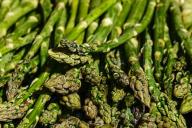Insulin is a powerful hormone that regulates sugar in our bodies, so scientists study it a lot.
Meanwhile, insulin resistance is still poorly studied, so a team of scientists have researched it recently.
Here's what they managed to learn.
A new study on insulin
Researchers have conducted a study on insulin signaling in mice to understand how genetics and diet affect it.
They found that genetics and diet play significant roles in shaping insulin signaling in muscle, which is crucial for metabolism.

This research also introduces a tool for studying insulin reactions and may inspire further studies on metabolic diseases and diabetes.
Insulin resistance, which is linked to genetic factors and high-calorie diets, remains poorly understood despite its connection to diseases like type 2 diabetes.
The researchers studied mice with different genetic backgrounds, feeding them normal or high-fat, high-sugar diets.
They analyzed protein phosphorylation in their muscles, identifying known and previously unknown insulin-regulated sites.
Their algorithm helped separate genetic and diet effects.
Genetics had a substantial influence on almost half of insulin-regulated sites with a normal diet, while diet-induced changes were mostly shaped by genetics, even causing opposite effects in different strains.
Why it's important
The study identified key phosphosites that likely control insulin response, with one modification reversing insulin resistance in a cell-based model.
This research sheds light on how genetics and diet impact insulin signaling, opening doors for future studies on insulin resistance and diabetes.









